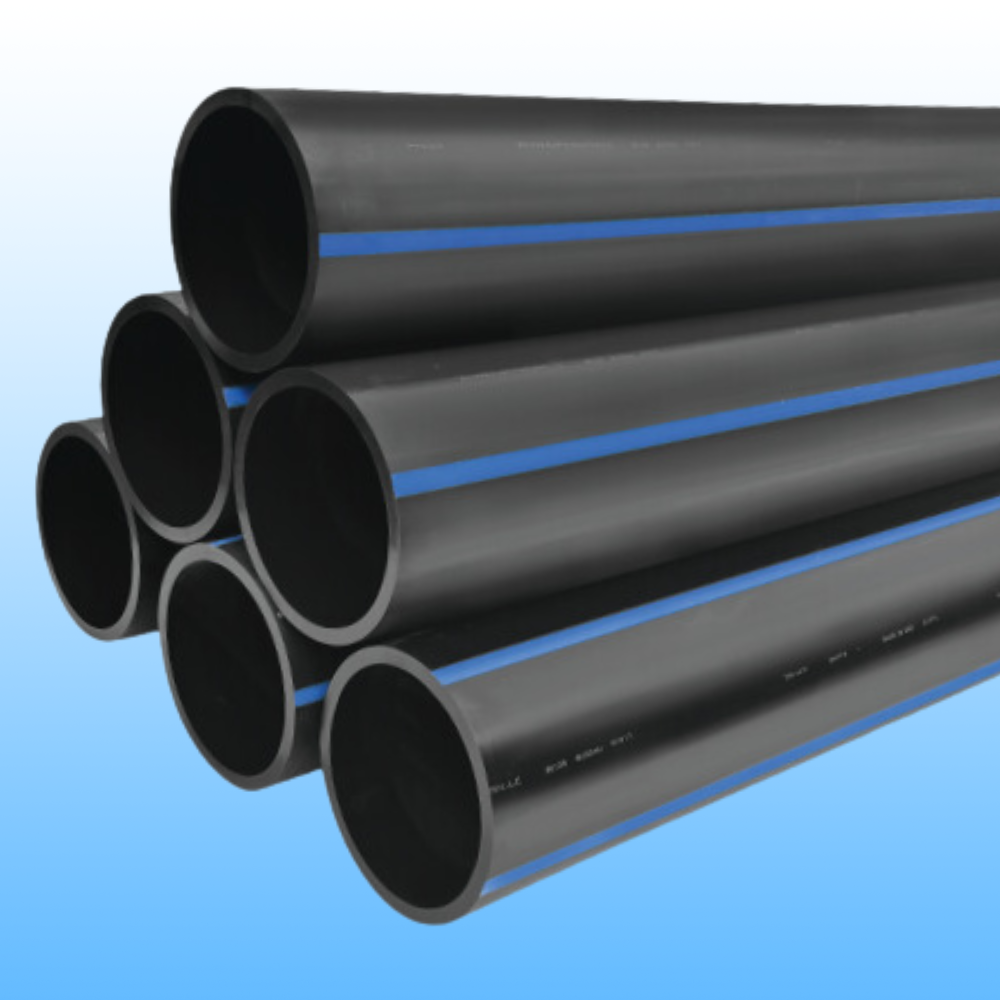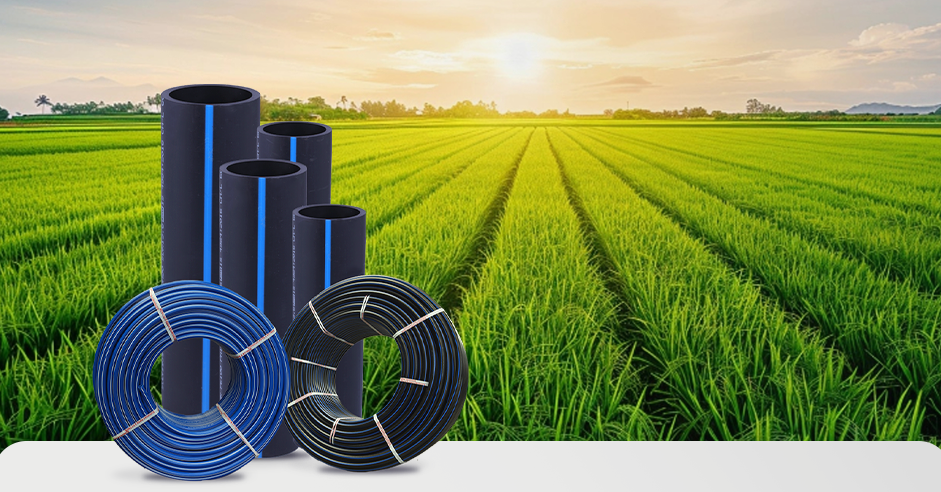Exploring American Plastics HDPE Pipe Manufacturing and Its Importance in Modern Infrastructure
A Comprehensive Overview to the Various Uses HDPE Pipeline in Building and Market
HDPE pipes have become a pivotal component in contemporary construction and commercial applications. Their special properties, such as resistance to corrosion and lightweight style, make them suitable for a large range of usages. From water system systems to farming irrigation, HDPE pipelines provide solutions that boost effectiveness and sustainability. Comprehending their diverse applications is vital for experts looking to maximize facilities. What details benefits do these pipelines give each field?
Water and Distribution Systems
Water and distribution systems are important components of city infrastructure, usually depending on high-density polyethylene (HDPE) pipelines for their longevity and efficiency. These systems transportation drinkable water from treatment centers to customers, guaranteeing ease of access and safety. HDPE pipes are favored for their resistance to deterioration, chemicals, and severe temperatures, which boosts their long life and reduces upkeep expenses. In addition, their lightweight nature permits for less complicated installation and transport, making them suitable for various urban and rural applications.
The versatility of HDPE pipelines enables them to be set up in limited rooms and around obstacles, decreasing the requirement for considerable excavation (hdpe pipe suppliers Midland TX). Their smooth indoor surface minimizes friction losses, enhancing water circulation rates. As cities continue to expand, the demand for trustworthy supply of water systems raises, positioning HDPE pipes as a lasting solution for modern framework tasks. Their proven track document makes them a recommended choice among designers and city planners alike
Wastewater Administration and Therapy
Reliable wastewater management and treatment are necessary for keeping public health and environmental high quality. HDPE pipelines play a vital role in this process because of their durability, resistance to corrosion, and ability to stand up to extreme chemicals. These pipelines are generally utilized in various applications, consisting of sewer system, stormwater drain, and wastewater treatment centers. Their lightweight nature facilitates simpler setup and transportation, decreasing labor expenses and time.
In enhancement, HDPE pipelines have a smooth interior surface area that reduces friction loss, advertising efficient circulation rates. They are additionally much less prone to leakages and failures contrasted to standard materials, making certain that contaminants are contained properly. Additionally, their adaptability permits adaptability in different soil conditions, making them ideal for diverse ecological settings. As sectors progressively focus on sustainable methods, using HDPE pipes in wastewater administration systems straightens with goals for minimizing environmental effect and boosting resource healing.
Agricultural Watering Solutions
In farming settings, effective watering solutions are necessary for optimizing crop returns and taking care of water resources. HDPE (High-Density Polyethylene) pipelines play an important role in modern watering systems due to their sturdiness, adaptability, and resistance to corrosion. Their ability to endure high pressures makes them suitable for both surface area and subsurface irrigation applications, guaranteeing consistent water circulation throughout areas.
Farmers can make use of HDPE pipelines in drip irrigation systems, which deliver water directly to plant roots, reducing waste and advertising healthy and balanced development. In addition, these pipelines are light-weight and very easy to mount, reducing labor prices and installment time. Their lengthy lifespan and low maintenance requirements even more enhance their appeal in agricultural practices.
HDPE pipelines are eco pleasant, as they can be reused and do not seep dangerous chemicals right into the soil. This makes them a sustainable choice for farmers aiming to take on eco-friendly agricultural approaches while taking full advantage of efficiency.
Industrial Applications and Processes
Versatility is a characteristic of HDPE pipelines, making them vital in different industrial applications and procedures. These pipelines are commonly utilized in chemical handling markets because of their excellent resistance to a vast array of destructive substances. HDPE's light-weight nature, integrated with high tensile strength, allows for very easy setup and long-term efficiency in demanding settings.
In the oil and gas market, HDPE pipes play an essential duty in delivering hydrocarbons and gases, thanks to their durability and adaptability - American Plastics HDPE Pipe for Oilfield. Additionally, they are used in mining operations for the transport of slurry and various other materials, where typical piping systems may fall short
HDPE pipelines are significantly utilized in making centers for great post to read water supply lines and wastewater administration. Their capacity to withstand extreme temperature levels and stress makes them suitable for a range of commercial processes. In general, HDPE pipelines add greatly to effectiveness and safety and security throughout diverse industrial applications.
Stormwater Administration and Water Drainage Systems
Stormwater administration and drain systems are critical elements in metropolitan framework, made to manage excess rainfall and decrease flooding threats. High-density polyethylene (HDPE) pipelines are increasingly utilized in these systems due to their sturdiness, adaptability, and resistance to corrosion. These pipes effectively deliver stormwater far from booming locations, minimizing surface runoff and avoiding waterlogging.
HDPE's lightweight nature promotes less pop over here complicated installment, minimizing labor prices and building and construction time. Additionally, its resistance to chemicals and ecological stress factors warranties durability and dependability in various environments. In addition to standard drain applications, HDPE pipes are also employed in innovative solutions such as environment-friendly framework, which consists of rainfall gardens and permeable sidewalks.

Often Asked Inquiries
Just How Does HDPE Pipe Compare to PVC Pipe in Expense?
As a whole, HDPE pipeline often tends to be more expensive than PVC pipe due to its improved longevity and adaptability. However, long-term cost considerations, such as maintenance and life expectancy, may prefer HDPE in certain applications.

What Is the Life Expectancy of HDPE Water Lines Under Diverse Conditions?
HDPE pipes typically have a lifespan of 50 to 100 years, depending on ecological problems, setup methods, and usage. Variables such as temperature level, soil type, and direct exposure to chemicals can greatly affect their toughness.
Can HDPE Water Lines Be Recycled After Use?
Yes, HDPE pipelines can be reused after use. The reusing process involves thawing down the material, enabling it to be repurposed into brand-new products, thereby advertising sustainability and minimizing environmental influence connected with plastic waste.
Exist Any Type Of Particular Installment Difficulties With HDPE Pipes?
Installment challenges with HDPE pipelines include correct jointing methods, making certain appropriate trench conditions, and handling thermal expansion. In addition, proficient labor anchor is required to deal with customized devices, which can make complex the installation procedure in various atmospheres.

What Qualifications Should I Look for When Purchasing HDPE Pipes?
When purchasing HDPE pipelines, one need to look for certifications such as ASTM, AASHTO, and ISO, which confirm top quality and conformity with market requirements, guaranteeing resilience and performance in numerous applications. - American Plastics HDPE Pipe Manufacturing